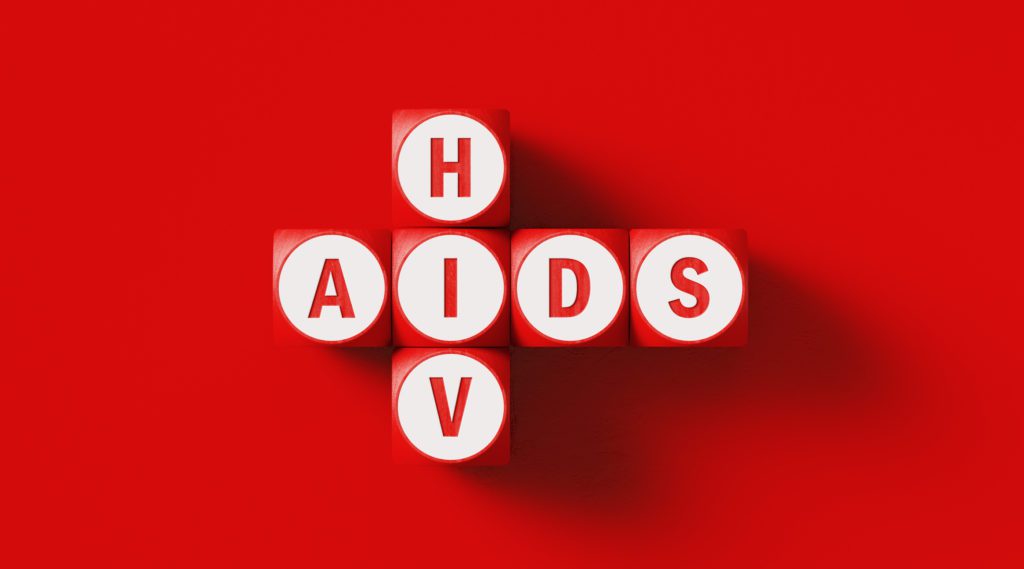


Ryan White Grantees’ Role in Helping HIV/AIDS Patients Access Care
The HIV Epidemic has claimed over 39 million lives worldwide since 1981. However, today, receiving a HIV diagnosis is not a death sentence…thanks to groundbreaking medicines and health care services available. In fact, the US Department of Health and Human Services (HHS) announced the “Ending the HIV Epidemic in the US plan” in 2019, and its goal is to end the HIV epidemic in the United States by 2030. Specific goals include reducing the number of new infections by 75% by 2025 and 90% by 2030.

HIV Statistics
- Almost one million people die from HIV/AIDS related complications each year.
- Nearly 1 in 5 people with HIV don’t know they have it, don’t get HIV medical care, and unknowingly pass the virus on to others.
- Only 28% of people with HIV take medicine regularly and have their virus under control.
- Around 9.5 million people are unable to access antiretroviral therapy.
- More than 50% of people diagnosed with HIV receive treatment from a Ryan White grantee.
Key players in helping HHS meet their goal are HRSA Ryan White HIV/AIDS Program grantees. Ryan White HIV/AIDS grantees serve hard-to-reach populations who are disproportionately affected by HIV by utilizing the 340B Drug Prescription Program among other resources. Grantees focus on providing care and treatment services for underserved at-risk populations, including the LGBTQ+ community, IV drug users, people facing homelessness or incarceration, and those without insurance. The 340B program has been a catalyst in helping the Ryan White clinics grow and provide services to more than half a million people each year. These clinics provide qualified recipients with FDA-approved medications, health insurance, services that improve access and adherence to drug treatments, among many other critical services.
Who was Ryan White?
Ryan White was a 13 year-old boy who lived in a small Indiana town and became infected with HIV after he had a blood transfusion. When he was diagnosed with AIDS, he was given six months to live. He faced AIDS-related discrimination in his small community and he had to fight for his right to attend school. Ryan gained national attention and became the face of the need for public education about the disease. He defied his doctors’ expectations and lived five years after his original prognosis. Ryan died one month before his high school graduation. Four months after his death, Congress passed the Ryan White Comprehensive AIDS Resources Emergency Act. It is the largest federally funded program for people living with HIV/AIDS.
Ryan White grantees make a difference
In spite of the progress made in treating people and educating the public about the disease, people living with HIV face discrimination in their day-to-day lives including within the healthcare industry. Stigma is still attached to the diagnosis, and it can lead to people avoiding prevention, testing, treatment, and disclosure. LGBTQ+ and BIPOC communities feel the biggest impact of discrimination in the form of homophobia, drug abuse stereotypes, and being moral judgement.
Ryan White grantees provide a safe space for vulnerable patients in their welcoming, inclusive clinics. They ensure that anyone who needs it receives access to life saving care, regardless of their ability to pay. Ryan White grantees are also providing gender affirming care and treatment services for transgender and gender diverse people with living with HIV. In addition to medical care and medication, Ryan White grantees provide housing, behavioral/mental, health care, and in some cases, even dental care. 340B program funds are essential to supporting grantees in their mission to expand prevention, diagnosis, and treatment of HIV. These clinics support HIV/AIDS patients holistically and they educate the broader community on proper care and inclusivity.
Facts and figures
According to a 2020 report from HRSA, the Ryan White Program has improved outcomes for those affected by HIV/AIDS:
- Viral suppression on average increased from 69.5% suppressed in 2010 to 89.4% suppressed in 2020.
- Average age group of Ryan White clients expanded from 45-54 years old in 2010 to 21-64 years old in 2020.
- Approximately 600,000 patients participate in the program.
- Over 300,000 patients who participate do not have health care coverage.
- Patients living below the federal poverty level will not need to pay a fee.
A little more on the 340B Drug Prescription Program…
The 340B program began in 2002. In order for drug manufacturers to participate in federal programs like Medicaid and Medicare, they must provide outpatient drugs to eligible health care organizations such as not-for-profit hospitals, Ryan White & STI clinics, and community health centers, at significantly reduced prices. Savings generated by the program for these covered entities are a significant source of their overall revenue and absolutely critical to their ability to serve their vulnerable patient populations.
We want to thank all of the Ryan White HIV/AIDS Program grantees for providing incredible care and support for their patients. It is admirable to see these clinics deliver high quality equitable care while being focused on ending discrimination and breaking down the barriers to accessing critical services within the healthcare system
